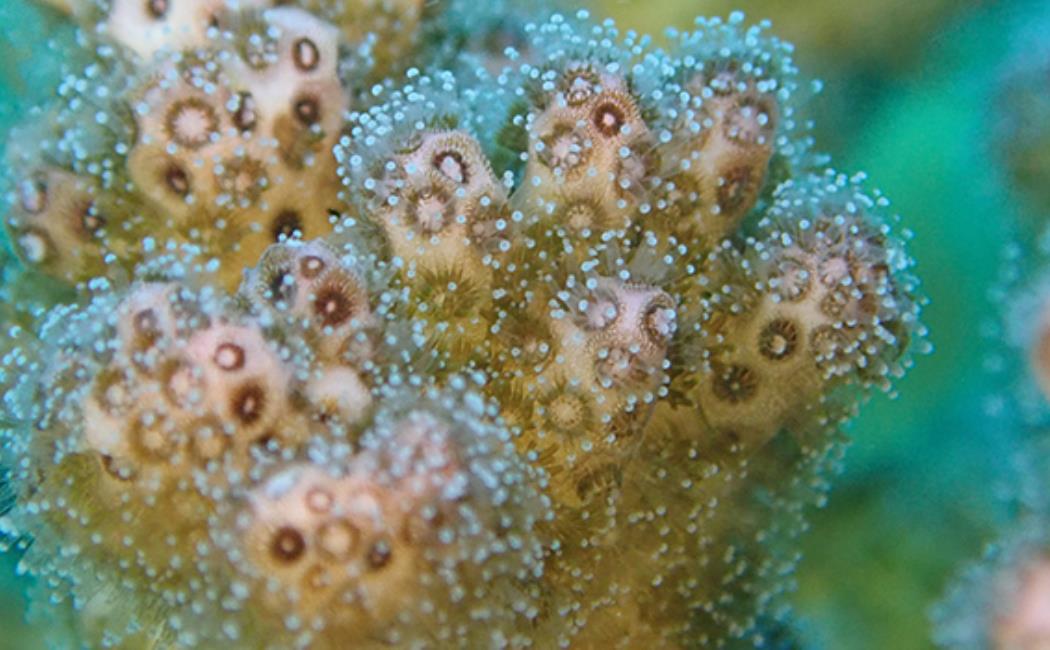
Cauliflower coral genome sequenced
27 October, 2020
The sequencing of the genome of the cauliflower coral, Pocillopora verrucosa, by an international team, provides a resource that scientists can use to study how corals have adapted to different environmental conditions.
The cauliflower coral, also known as brush or lace coral, is one of the most popular corals in research because it is found throughout the Red Sea, the Indian Ocean and the Pacific Ocean. “Having the genome will help us understand the genetic basis underlying the species’ adaptation to different environmental conditions,” says Carol Buitrago-López, a Ph.D. student supervised by Christian R. Voolstra, “which might shine light on how corals could respond to global warming.”
Click here to read the full story
Image: KAUST researchers compared populations of cauliflower corals to identify sites in the genome linked with adaptations.
© 2020 KAUST; Hagen Gegner